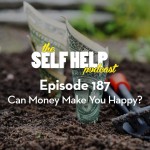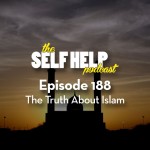Islam
This week we had Rehman Khan on the show. I met Rehman at an away day with one of the American companies that I cover here in the UK. On the away day I was giving an introduction to Mindful Mediation. For the practice session I used a breath focus technique during which Rehman fell asleep. It was quite a shock to him that he could be that relaxed. In our subsequent conversations we discussed how he might include this feeling of calm relaxed, focus into his daily prayers, something that he has managed to do and, reports, has enhanced his prayer. Following this I suggested that he might like to come onto the show to give his view of God, spirit, religion and his take on Islam. This is certainly worth a listen and holds the record as the longest podcast that we have done.
The thing that struck me during and after the podcast was not the differences between beliefs but the similarities. And how the flow of philosophical belief is like an evolutionary tree. It came to me when Rehman was talking about the prophets that are referred to in Quran. My own philosophical base originates from the Ayurvedic discipline that would be identified with the teaching of Krishna, but has then been modified by philosophy, psychology, quantum physics and mindful psychology. That got me thinking about those minds that have effected the way that we think and the things that we believe. So, with a bit of Google and some books I created a timeline of philosophers and prophets. It strikes me how one follows another and though it may be at odds with it’s predecessor it often would not exist had it not been for the predecessor. Judaism leads to Christianity as much as Christianity leads to Islam.
The thing about those people that shape what we think and what we believe is that they have taken the time to think, meditate and consider the nature of things. Conclusions about ethics, morals and the rightness of behaviour are in the realms of philosophy and are always open to interpretation, evolving just as human consciousness evolves.
It is said that the first prophet was Adam, of the garden of Eden, who is said to have lived between 100 and 200,000 BC. Whether or not such a person existed is open to speculation. But I guess there needs to be a starting point. Both the Bible and the Quran acknowledge Idris or Enoch 99,620 BC who is said to be the embodiment of patience.
My own philosophies begin with the people of the Indus 4,000 BC and the start of Ayur Vedic Science. The avatar or prophet Krishna 3,227 BC featured in the books the Mahabarata and the Ramayana and the acclaimed Bhagavad Gita that set out the laws of Karma, the result of action, Dharma the science of correct action. In the Ayurvedic and Yogic Cannon is the seven fold chakra system, not dissimilar to the ark of the covenant, or rainbow, found in the story of the flood with Nuh or Noah 2,800 BC.
The same stories are repeated throughout religion and philosophy telling the stories of spirituality, charity, love, forgiveness through Ayurveda, Judaism, Hinduism, Sikhism, Buddhism, Christianity, Islam, Spiritualism, Philosophy, Psychotherapy and modern Mindful Psychology. Even the modern versions of Christianity, the Christian Scientists, Jehovah Witnesses, Mormons, Baptists and Seventh Day Adventists are all saying similar things.
The more I talk to people of different faiths, beliefs and philosophies the more I realise how alike we all are. The problems begin when we distinguish our group as different from others and create “us” and “them”. It is then that we believe that “we” are better than “them” and can justify going to war against “them” and killing them, whoever they are.
The more we communicate and the more we listen to others the more we realise that we all aspire to the same things. We all want to be warm, fed and able to raise our families in safety.
In the end the only religion and philosophy relevant to us all is …
,,,if we all look after each other then we will all be ok.
Then we can all live safely and happily together.
Whatever your faith and belief and however you see your God, or not a God, be happy and look after each other.
Take care
Sean x



Trackbacks & Pingbacks
[…] Sean wrote a blog post on this subject. Have a read… […]
Leave a Reply
Want to join the discussion?Feel free to contribute!